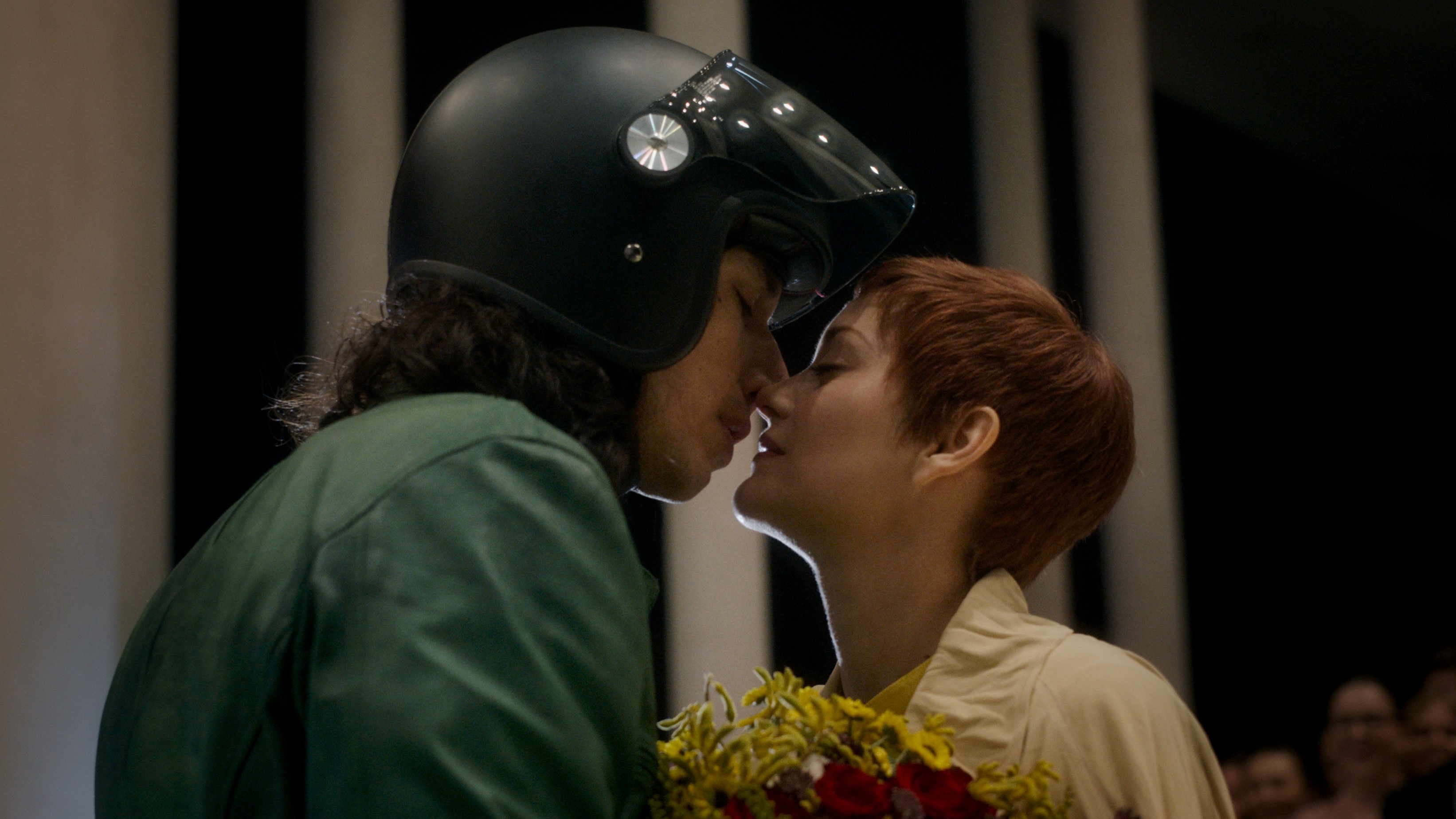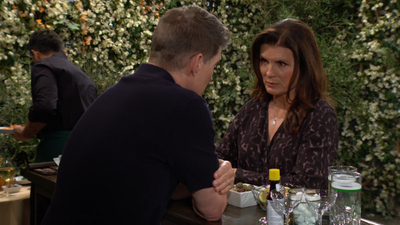What to Watch Verdict
An artistic vision so specific that it can become more interesting for how alien it is than for how it wishes to engage with you emotionally.
Pros
- +
🎶 The creation of a new modern opera for screen is no minor feat.
- +
🎶 Sparks' trademark absurdist humor is very present.
- +
🎶 Adam Driver is throwing his entirety into a wildly engaging performance.
Cons
- -
🎶 Pacing suffers in the first half.
- -
🎶 Female characters are sidelined and objectified in favor of dramatizing toxic masculine possessiveness.
- -
🎶 The whole film is so specific in its musical, comic, and visual sensibilities that it's inherently alienating to most viewers.
Annette is certain to be one of the most specifically idiosyncratic films to come out this year. As a collaboration between director Leos Carax and the cult pop duo Sparks (Russell and Ron Mael), it’s hard to imagine this film as anything else, an entirely uncommercial indulgence by a pair of cinephile musicians who have based their career on marching to their own beat regardless of whatever mainstream success they may inadvertently stumble upon, enabled by a filmmaker equally known for his own eccentricities. But to call Annette uncommercial is not the same as calling it unsuccessful. It’s fairly certain the Mael brothers ended up making exactly the film they set out to, absurdist touches and musical intricacies and all. The real question is whether that success translates into a film that will find an audience.
To call Annette a musical would be a disservice to what should be more rightly framed as an opera, with characters dropping in and out of song without much attention paid to each track’s viability as a soundtrack single. This acts as a suitable vessel for the high melodrama of the whirlwind romance between Henry McHenry (Adam Driver), a crass stand-up comedian whose stardom threatens to fall as quickly as it rose, and Ann (Marion Cotillard), an opera singer whose own fame only grows as she continues to die on stage for clapping audiences. As Henry begins to slip into self-absorbed despair and alcoholism, Ann starts to fear for their relationship and the safety of their daughter Annette, an infant portrayed by an obvious puppet.
Though the plot-integrated score is not without its catchy motifs, the music is primarily a mode for conveying heightened emotion. As Henry wildly gesticulates on stage for a rhythmically laughing audience, it becomes apparent that he doesn’t regale with them jokes so much as lay out the darkness of his own self-loathing. Annette isn’t without Sparks’ trademark wry sense of humor though, such as when an opening narration tells the audience that breathing will not be tolerated in theater, or when Henry and Ann spend minutes of screentime singing the lyrics “We love each other so much” on repeat only to culminate in a scene of cunnilingus whilst both still sing their banal ode to one another, but the core of the film is using the baked-in absurdity and surreality of opera to tell a very dark tale of male ego and self-destruction.
This provides Adam Driver with a rather meaty role to sink his teeth into, and he sings and flails through the emotional turmoil by modulating between soft contemplation and scenery-chewing theatrics. The same cannot be said for Marion Cotillard, who is relegated to a role that mirrors the operas her character performs with specificity but without much commentary. She becomes sidelined, albeit in contextually interesting and visually arresting ways, but is ultimately not a character the film desires to explore, nor is Annette treated as much more than the literal prop she is. This is an obvious point of the film’s narrative, portraying Henry as so wrapped up in his neuroses that his own daughter is seen as a doll for him to possess, but it still leaves the film entirely restricted to a toxic male perspective even as it highlights how that ego is destructive to the women he loves. This becomes contrasted by a decidedly nontoxic supporting character in the second half, played by Simon Helberg, so while the narrative makes purposeful strides to center Henry as the villain of his own story, the film decidedly lacks almost any female agency until the final scene, where the feminine perspective literally ages out of infantilization.
In the moment, Annette is a fascinating exercise of very specific sensibilities being put to the screen. It leans rather heavily into operatic scope at a hefty runtime of two hours and nineteen minutes, with the first half's redundant pacing suffering as a result, but once the inciting incident for the second half occurs and the focus shifts to the title character, the surreal fantasia settles into something more digestible and less aimless. It’s far from unhinged, as Annette’s clearly visible joints can attest, peppering Russell and Ron Mael’s sardonic and sarcastic wit into the tradition of high opera with their closest approximation of complete sincerity. Longtime fans of Sparks will almost certainly find this work in line with, if not a culmination of, their pop music career, and while it feels purposely alienating on first viewing, it’s easy to see the film gaining cult appeal upon multiple rewatches as the specificity of the musical setpieces and absurdist visual motifs gain familiarity. But it’s also an artistic vision so specific that it can become more interesting for how alien it is than for how it wishes to engage with you emotionally. Some might consider that a fatal flaw for a high melodrama. For the Mael brothers, it’s a feature you either need to commune with or be bewildered.
Annette opens in theaters on August 6, 2021, and premieres on Amazon Prime on August 20, 2021.
Leigh Monson has been a professional film critic and writer for six years, with bylines at Birth.Movies.Death., SlashFilm and Polygon. Attorney by day, cinephile by night and delicious snack by mid-afternoon, Leigh loves queer cinema and deconstructing genre tropes. If you like insights into recent films and love stupid puns, you can follow them on Twitter.












